Women in Wine
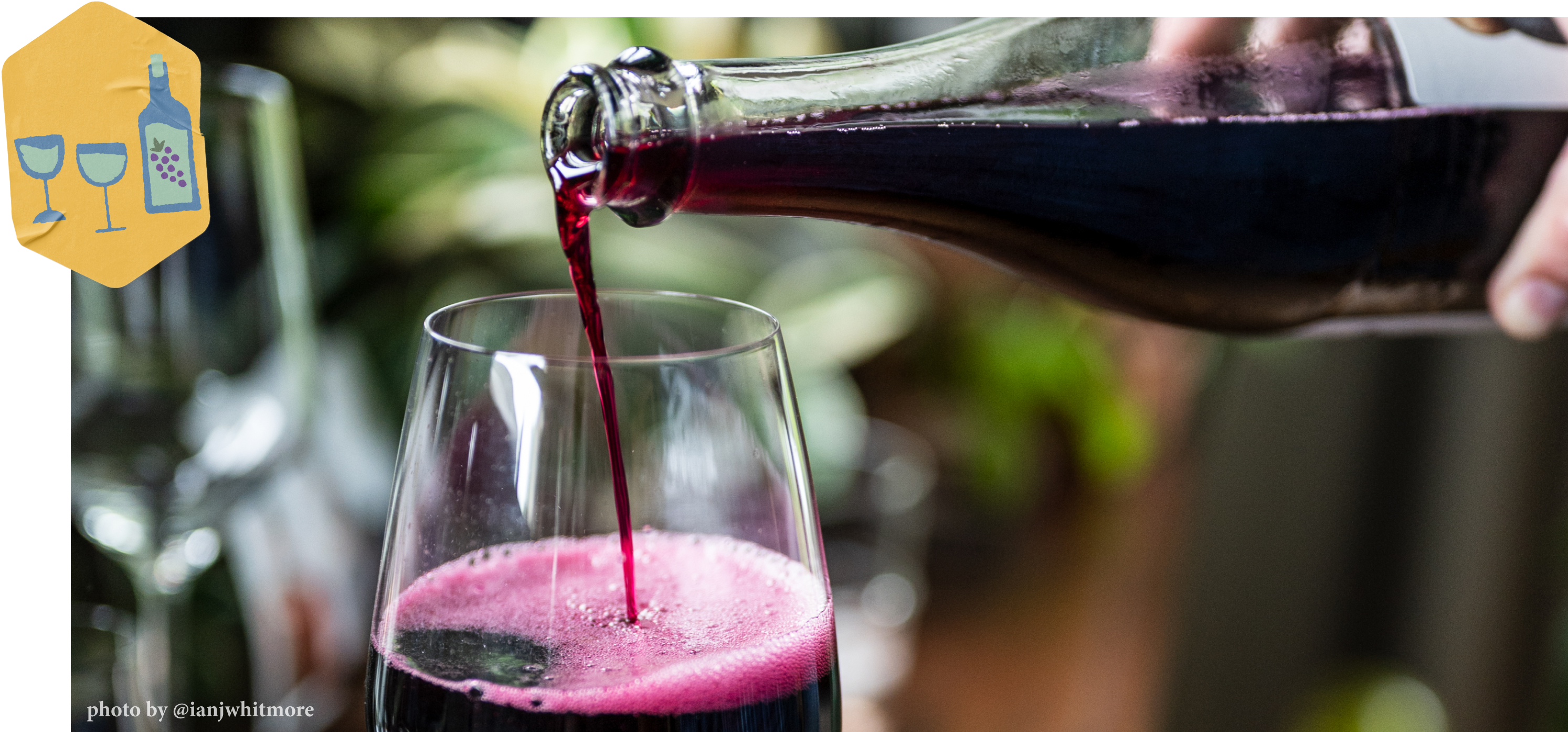
By now, Oregon has established itself as one of the world’s great winemaking regions. When the first wave of serious Willamette Valley vignerons started planting vines in the ‘60’s, many laughed them off. But now, after more than a half-century and many, many world-class vintages later, it’s clear those pioneers were on to something. That groundbreaking spirit remains strong here in the NW, and the current generation of young winemakers are making their own mark on the industry. This Women’s History Month, we’re highlighting some of the most interesting young winemakers in the region, who just so happen to be women.

Fossil & Fawn
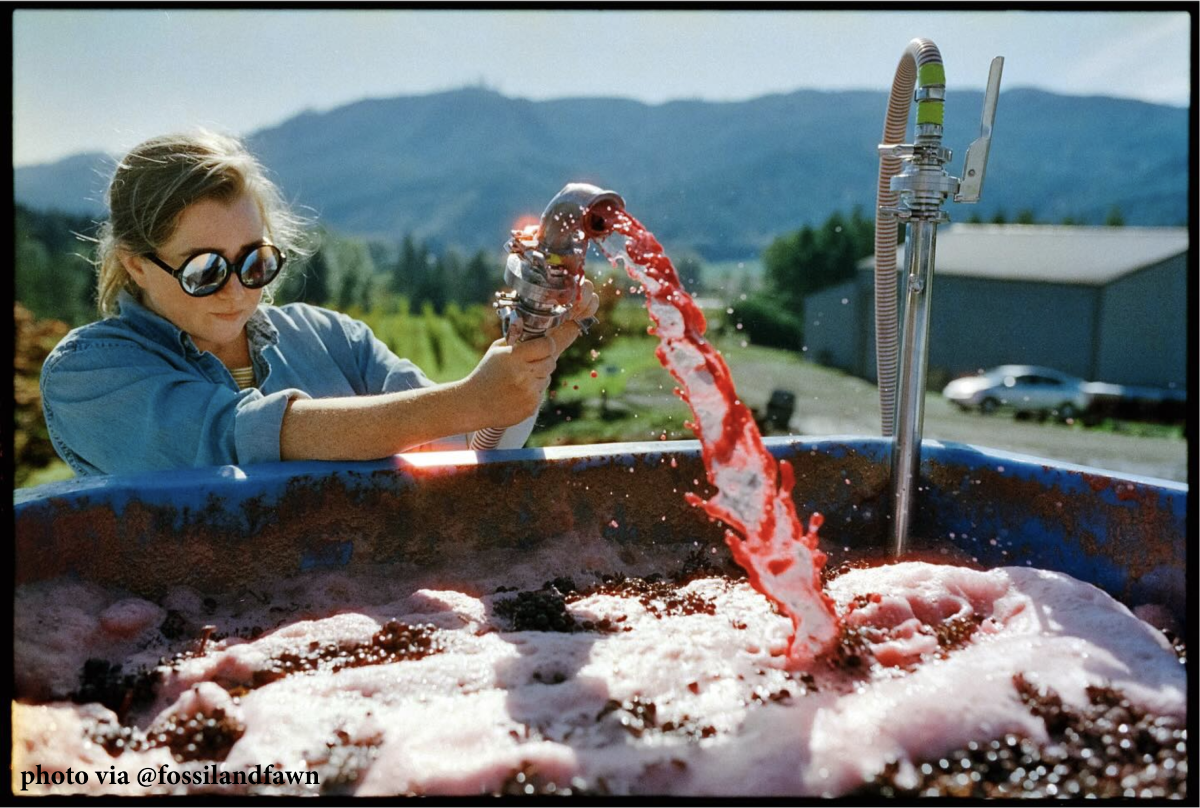
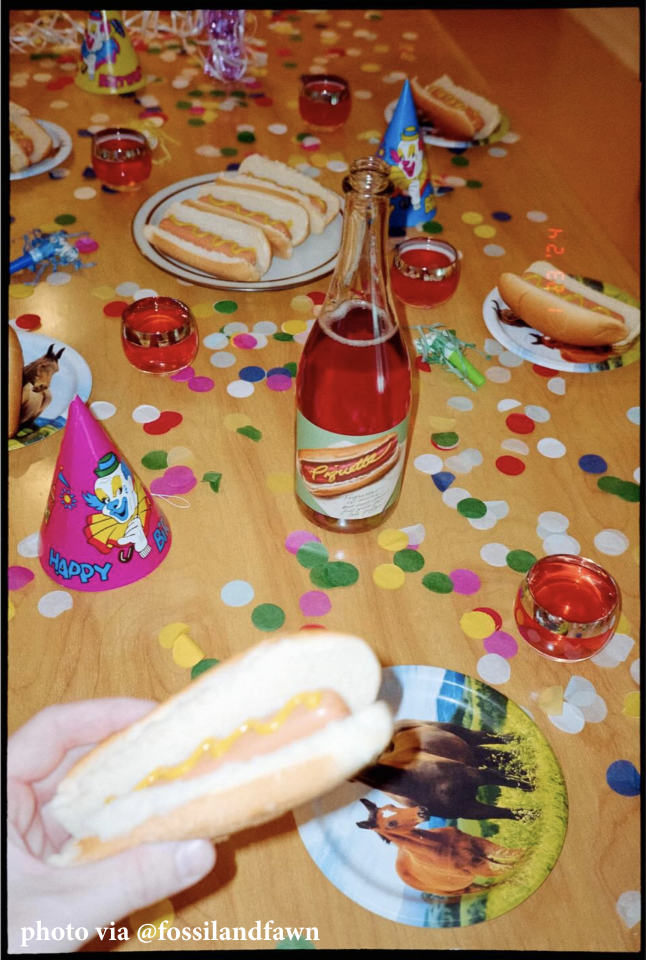
Jenny Mosbacher didn’t set out for a career in wine. After graduating college with an art degree, she landed a job in the tasting room at Ponzi Vineyards, one of the Willamette Valley’s pioneering family wineries. As Jenny tells it, there was no single “a ha” moment, but rather a slow accumulation of enthusiasm that eventually led her to take wine more seriously. Initially, she studied up on wine so as to be a better tasting room salesperson. That unlocked the realization that terroir–the place and manner in which the grapes are grown–had a real impact on what wound up in the bottle. Afterall, she was walking through the vineyards every day, smelling them, observing the weather patterns, and noticing growth trajectories. In the tasting room, she was selling a 2004 Pinot Noir, and it clicked for Jenny that the culmination of that year’s growing conditions (hot summer, poor fruit set) had created a vintage of delicious, well-balanced wines. She started helping out during harvest, learning to sort fruit, load bins, and deeping both her understanding and interest in winemaking.
“I got a crash course in real wine working there, and I realized that there were a lot of parallels to what I loved about studying and making art and the wine world. Both are connected to culture, nature and history and encompass technical skill, socio-cultural dynamics and the experiential nature of tasting. That just really appealed to the way my brain works, and it was really non-stop from there.”
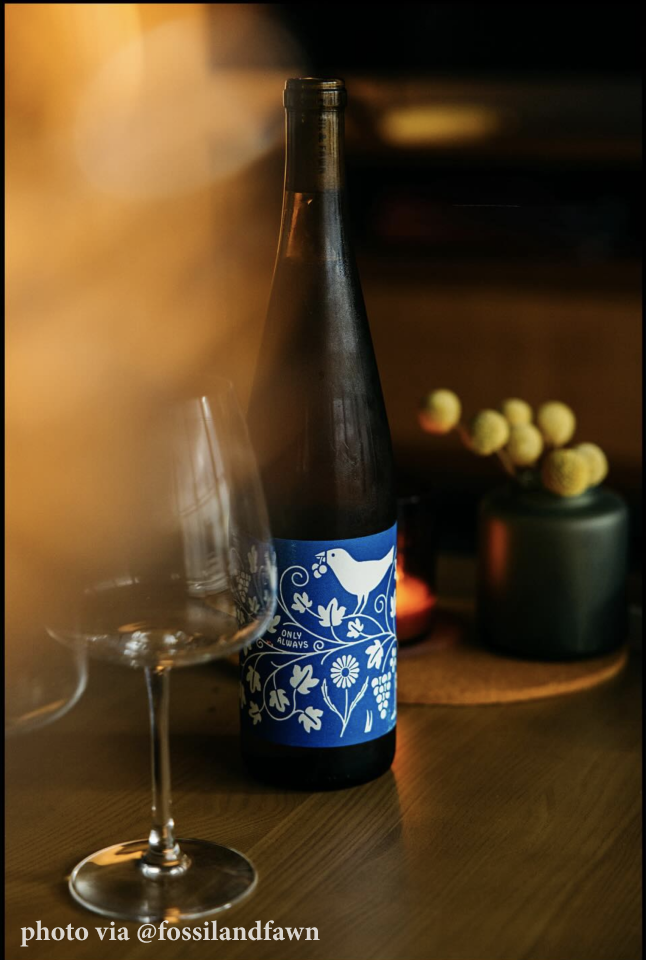
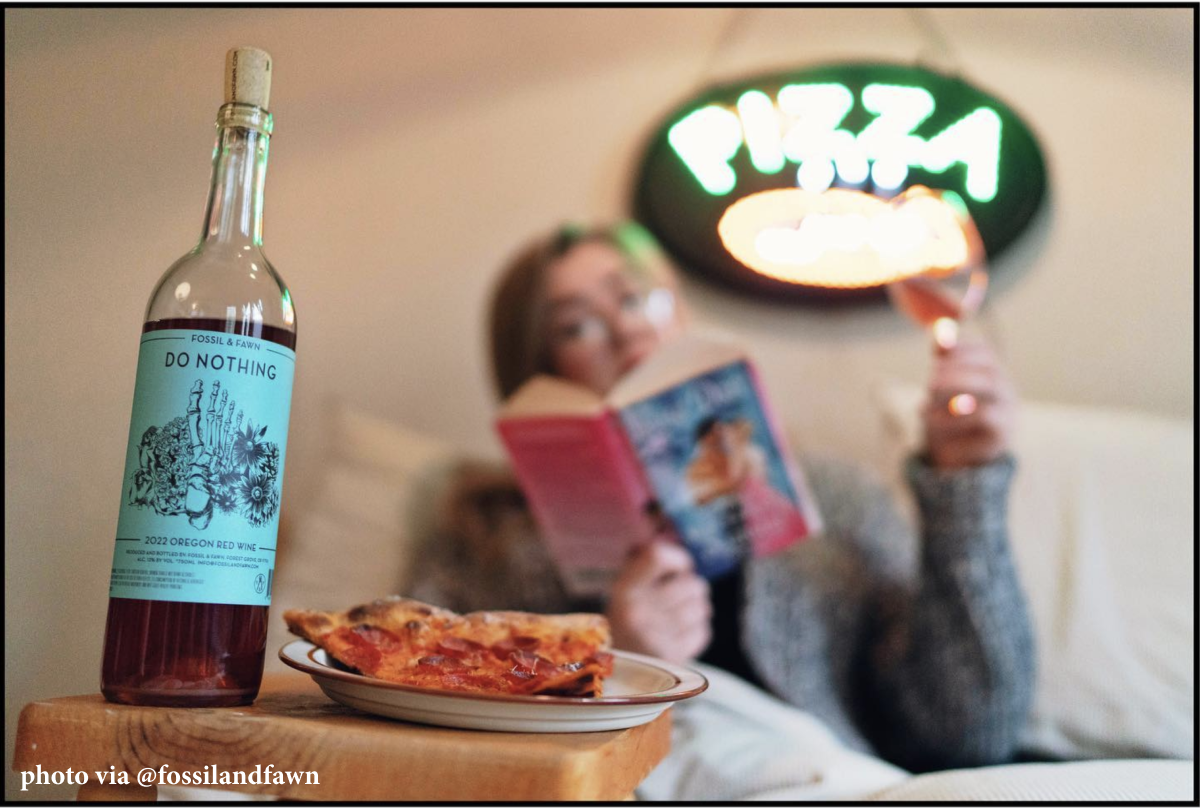
In 2010, she met her now-partner, Jim, whose father was growing impeccable fruit on a vineyard he owned in Rickreall. Jim’s dad, rather than make wine, sold the grapes to other wineries, where they were primarily used in blends. In 2011, trying to find ways to convince winemakers that their grapes could stand on their own and “armed with just enough information to be dangerous,” Jenny and Jim decided to make a small lot of single-vineyard Pinot Noir as a proof of concept to show buyers. Afterall, “(Jim) and I both had harvest experience, some wine education credentials, and that was enough for us to go for it.”
They started small, naming their new label after the ancient marine sediment soils and frequent deer sightings at their family vineyard. Uninterested in “bold manifestos or style declarations,” Jenny and Jim began by making the kind of wine they like to drink, and have held fast to that ethos for nearly 15 years, even as their label has grown to produce over 5000 cases of wine annually. We’re happy to say that our tastes often align with Jenny and Jim’s, and Fossil & Fawn wines are in frequent rotation at Wellspent HQ. Working without commercial yeasts, additives, or enzymes and aging exclusively in neutral oak and stainless steel, they are content to let the vineyard do the talking. The resulting wines are well-balanced, bright, and playful, unbound by strict adherence to tradition but firmly rooted in Oregon’s winemaking heritage. Fossil & Fawn’s official motto is “Get Weird, Suck Less,” which Jenny explains “is about not taking ourselves too seriously, thinking creatively about the practice of winemaking, and getting better by learning and unlearning every time we do it.” Which, come to think of it, sounds a bit like an artist’s approach to us.
Images via @fossilandfawn

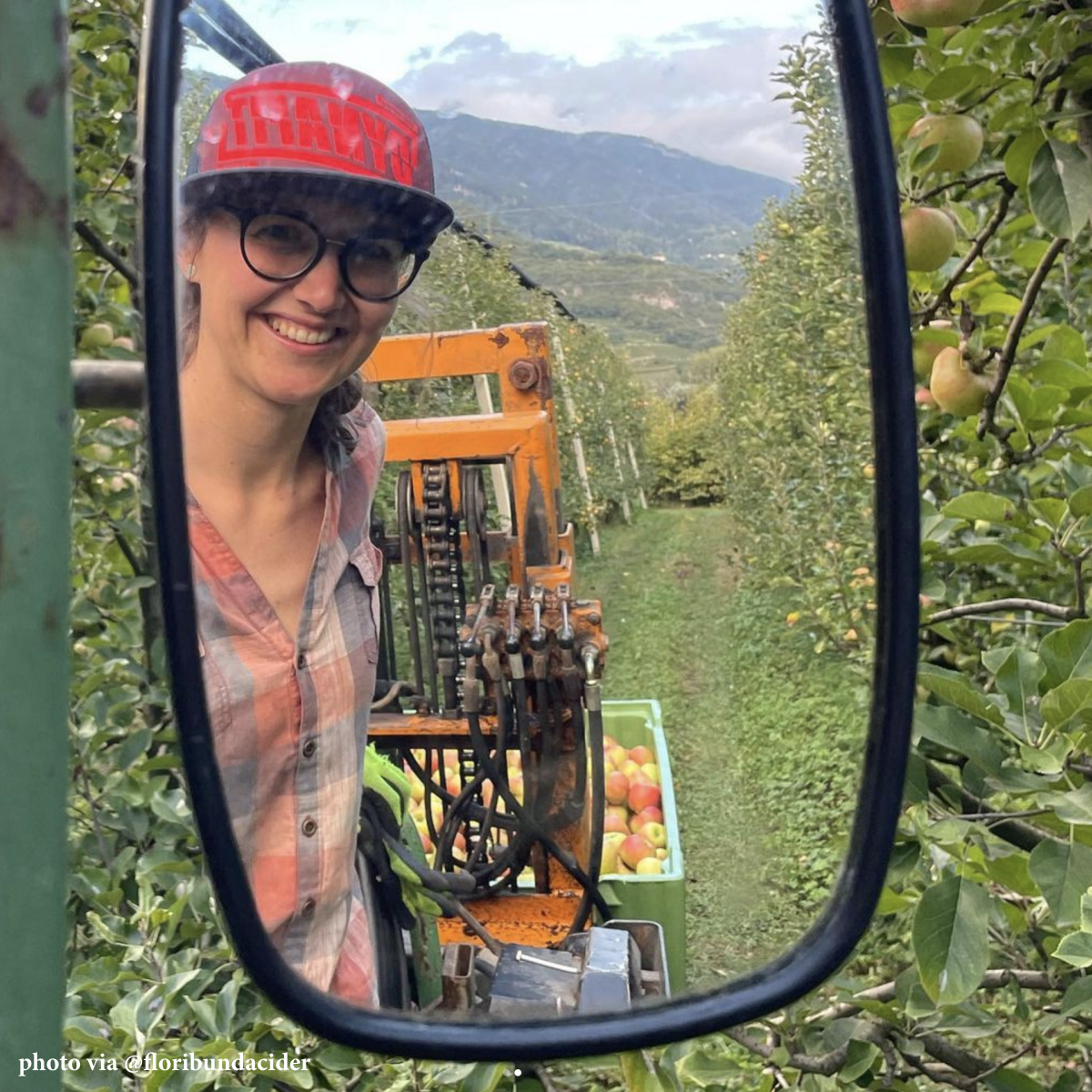
Floribunda
Magdalena Egger’s family has been farming in South Tyrol for over 100 years. The cidery she owns and operates with her father Franz, Floribunda, is named for the explosion of blossoms that blanket the mountainous foothills of the area, known in Italian as Alto Adige, every spring. But it wasn’t always wine and flowers for the Egger family. Founded by the Romans in 1140 and part of the Austro-Hungarian Empire until 1918, the rise of fascism in the region in the wake of WWI caused massive displacement throughout South Tyrol, and Magdalena’s ancestors had to abandon the family’s farm in Bolzano. Her grandfather Anton, after working for years as a gardener at a local abbey, eventually reclaimed his birthright in 1959, purchasing 3 hectares and establishing an apple orchard in the nearby village of Salorno.
Franz was born in 1956, and in the mid-1990s persuaded his father to convert part of the orchard to organics. While Anton sold the bulk of the apples to a nearby agricultural cooperative, Franz used his organic apples to experiment with cidermaking. Initially, his ciders were strictly for friends and family (they were always a hit at local weddings) but when Anton passed away in 2001, Franz took control of the entire farm. He planted quince, elderflower, and currants, and began cultivating hearty, blight-resistant apple varieties–Pilot, Topaz, and Gold Rush–that allowed him to discontinue the use of chemical pesticides entirely.
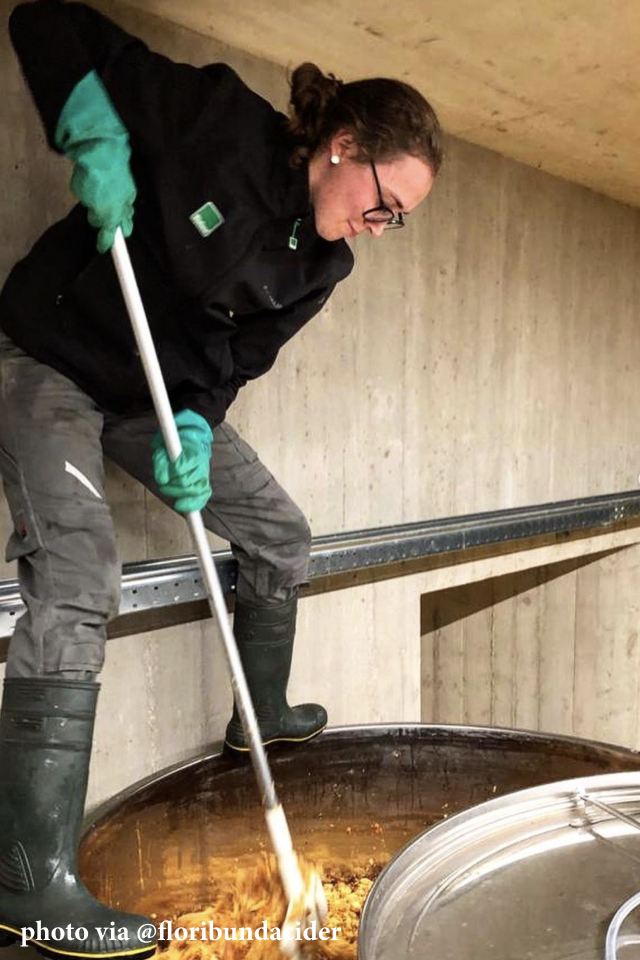
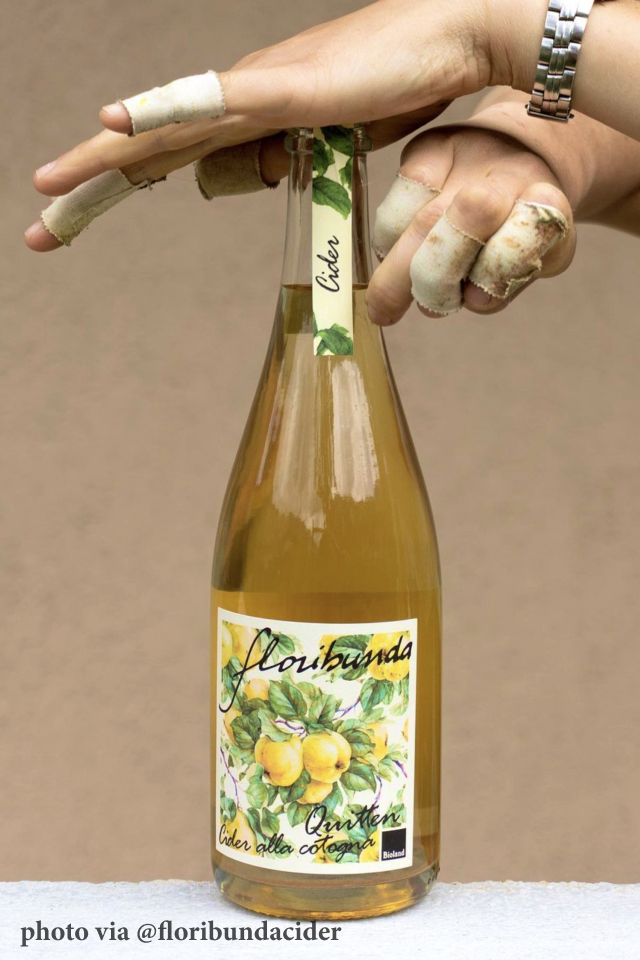
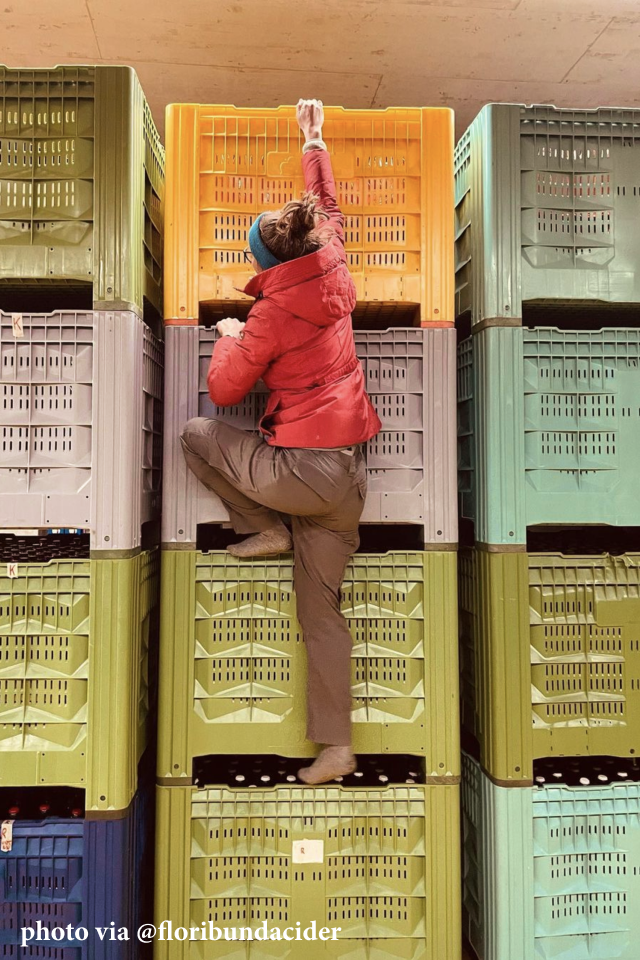
By 2015, Franz was ready to launch a commercial cider brand, and Floribunda was born. A childhood spent among the orchards–and playing cellarhand to her father–inspired Magdalena to pursue a degree in Viticulture and Enology at Milan University’s School of Agricultural and Food Sciences; she officially joined Floribunda in 2019. She has pushed her father further towards sustainability, insisting that Floribunda’s ciders be fermented naturally in the bottle without the addition of commercial yeasts or added sulfites. Her goal is to offer “a cider obtained solely from fruit, without the addition of sulphites, made sparkling in the bottle, and naturally cloudy,” and she has done just that. With Magdalena’s guidance, Floribunda’s ciders have become aromatic, textural, and food friendly, and, to our palate, some of the most interesting on the market. Not yet 30, Magdalena has nevertheless set a bright course for her family’s future in South Tyrol. We can’t wait to see what happens in the next 100 years.
Images via @floribundacider

Shiba Wichern
Shiba Wichern’s path to winemaking is a circuitous one. During journalism school, the life-long flavor hound supported herself by working in a beer bar, learning the ins-and-outs of IPAs and pilsners and stouts. It’s where she met Chris Wichern, a US-born student attending university in Japan, fellow craft beverage enthusiast, and her future husband. It was during a trip to Colorado to visit Chris that Akiko had her first experience with the American craft beer scene, and she returned to Tokyo with a renewed enthusiasm for all things fermented.
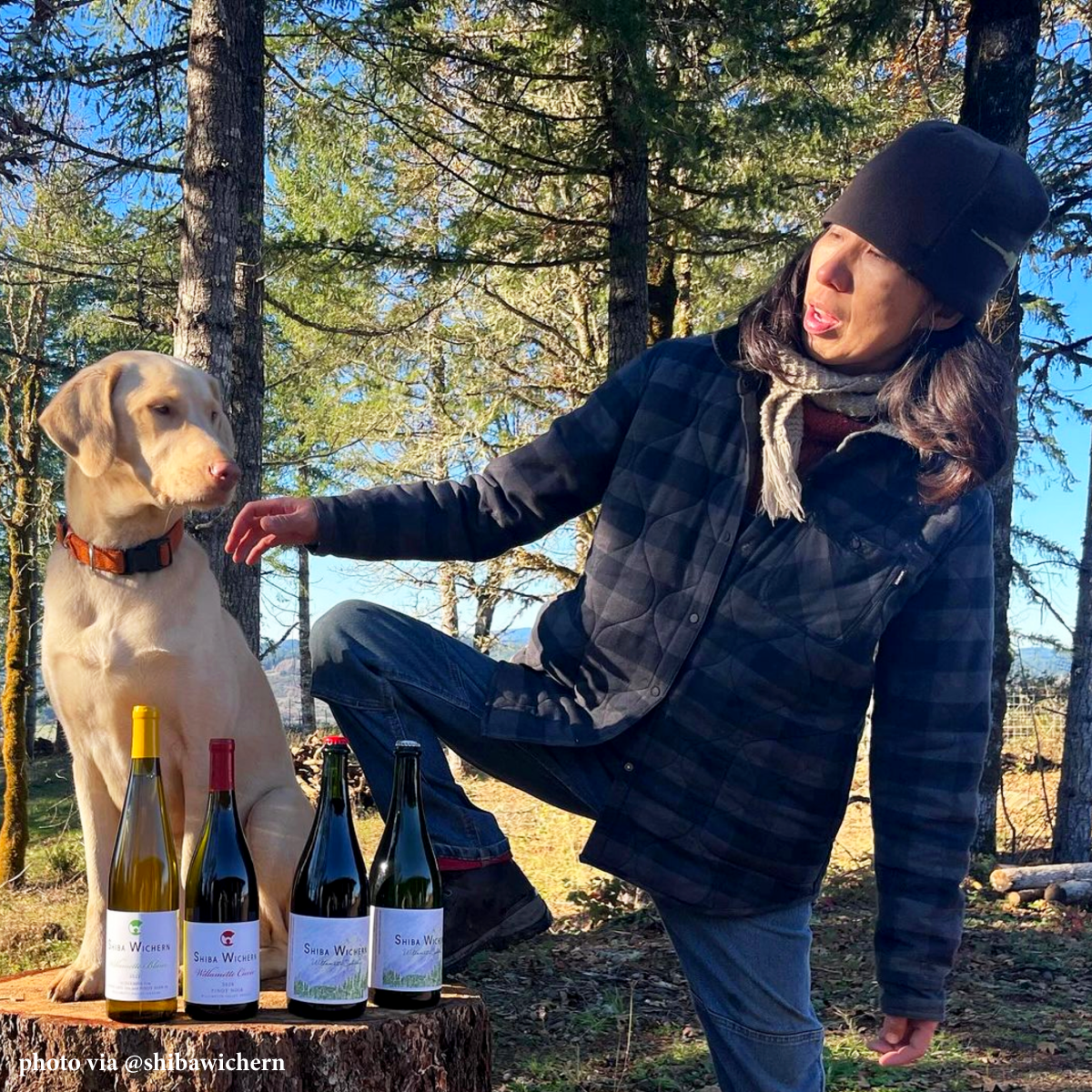
Serendipitously, one of her regulars at the bar, a well-regarded local editor, told her he was looking to staff up for the cooking magazine he was launching. Akiko jumped at the chance, and before she knew it she was interviewing chefs, restaurateurs, and sake brewers across Tokyo, further deepening her interest in alcoholic beverages of all stripes. When Chris took a job in Germany, Akiko joined him, figuring there was no better place on earth to seriously study beer. Upon landing in Dusseldorf, Akiko thought she might be in over her head: she spoke Japanese and English, but not a word of German. She enrolled in an intensive 8 month language course, where she became fast friends with a woman who’s husband owned a local winery. Akiko was fascinated by German wine, a beverage she hadn’t really encountered before. German-style beers are everywhere in Japan, but wine was decidedly niche. There was also the fact that the beer school she had planned to attend was hours from Dusseldorf by train, but there was a well-regarded wine school only 20 minutes away. The proverbial lightbulb went on, and she decided to go all-in on wine.
Akiko was fascinated by German wine, a beverage she hadn’t really encountered before. German-style beers are everywhere in Japan, but wine was decidedly niche. The proverbial lightbulb went on, and she decided to go all-in on wine.
During school she thought that eventually she’d go back to Japan to work as a wine journalist, but after spending a semester working in France, she fell in love with pinot noir and knew her future was in the vineyard, not behind a desk. After finishing school, she joined Chris in Richmond, Virginia, where he’d moved for work. Despite being the 10th largest wine producer in the US, Virginia was not for Akiko. She visited wineries and vineyards, but nothing grabbed her attention the way German and French wines had. She remembered that in one of her classes the professor rhapsodized about the world-class pinot noir being grown in Oregon, and without ever having visited, and despite not knowing a single person in the state, Akiko and Chris moved to the Willamette Valley in 2009.
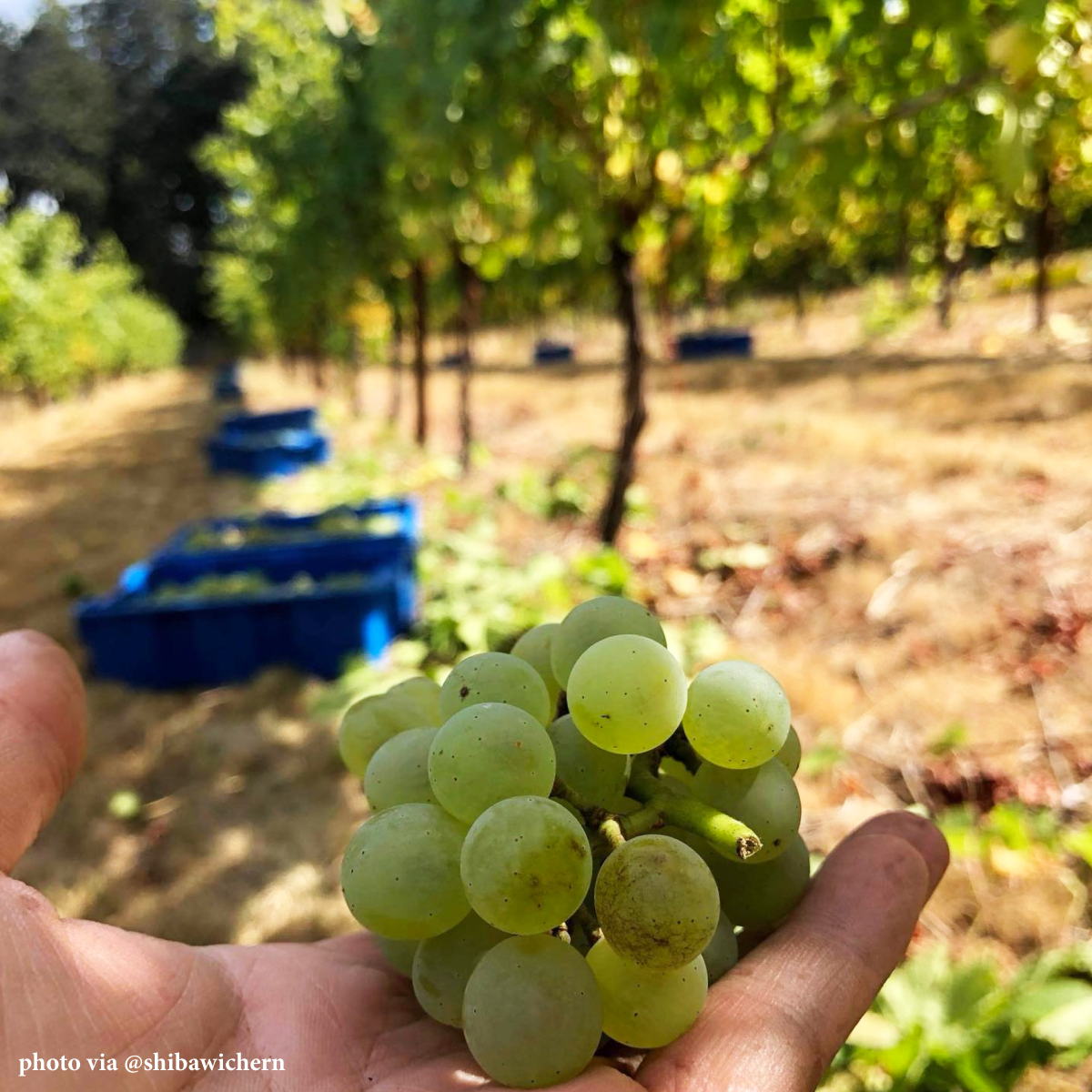
Akiko was surprised to find that unlike in Germany, vineyard work and cellar work in Oregon were essentially kept separate. She’d spend long days working in the cellar, only glimpsing the fruit when it was trucked in and dumped in the press. When she and Chris started Shiba Wichern in 2013, they negotiated contracts that allowed them to farm their own grapes, rather than purchasing them on the open market, giving Akiko the opportunity to observe vine behavior year in and year out. After a decade of land leases and sharing production space with fellow winemakers, Akiko and Chris were finally able to purchase their own property in Willamina in 2022, giving them complete control over the entire process for the first time. They have a vine nursery dedicated to white varieties, and dream of the day they can release the first Shiba Wicchern estate bottlings. From their new site, the path forward finally looks relatively straight.
Images via @shibawichern

Mijita Wine Co.
Lizzy Esquita came up in the heady world of Manhattan fine dining, working at clubby midtown media haunt Michael’s before landing at Tom Colicchio’s Craftbar. Those restaurants' deep wine lists inspired her to hone her skills, and she took sommelier certification classes at the Wine & Spirit Education Trust while waiting tables.From there, she jumped boroughs to help open Brooklyn Winery, where she realized she preferred making wine to selling it, and after 12 years in the Big Apple decamped to Oregon to get her hands dirty at Stoller Family Estate.
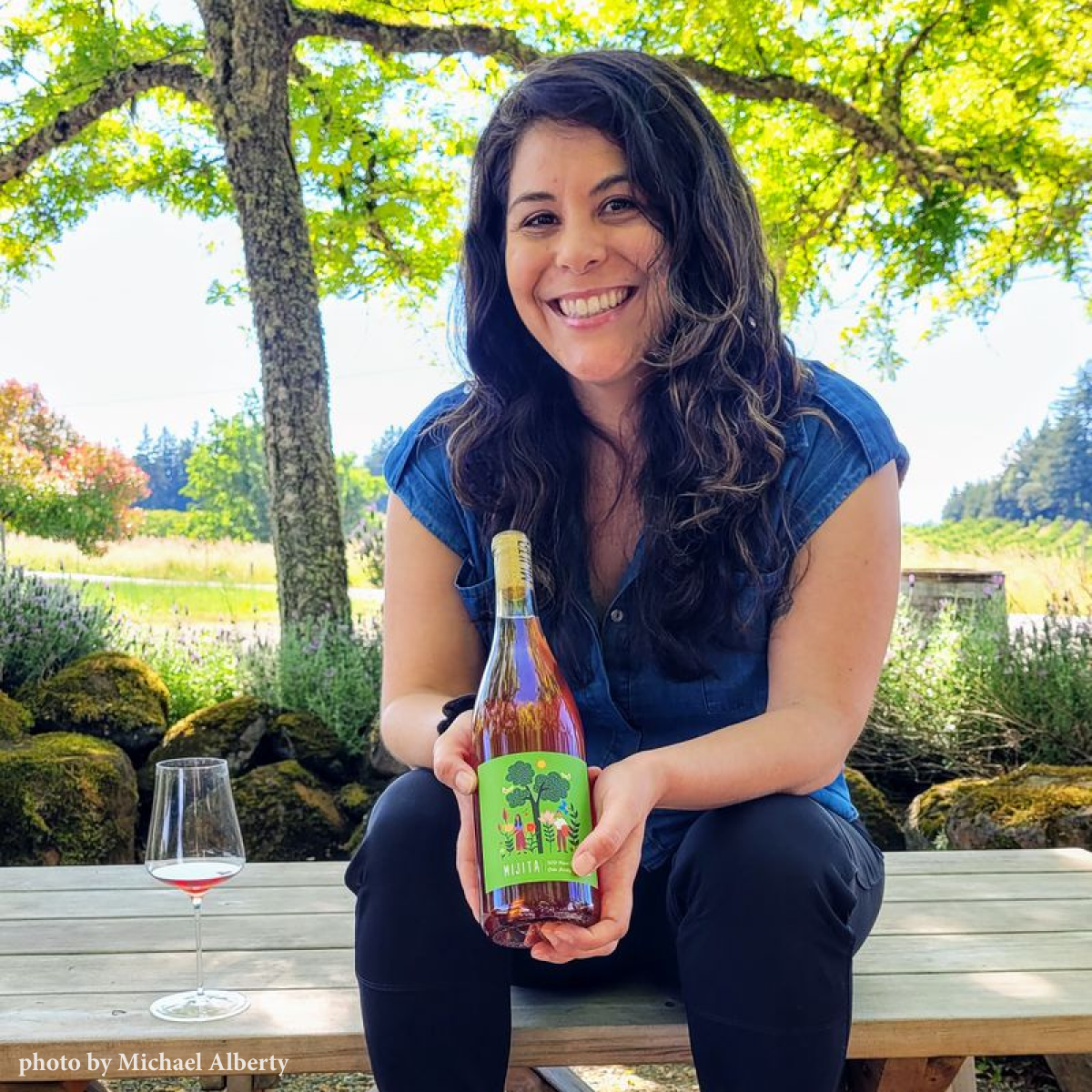
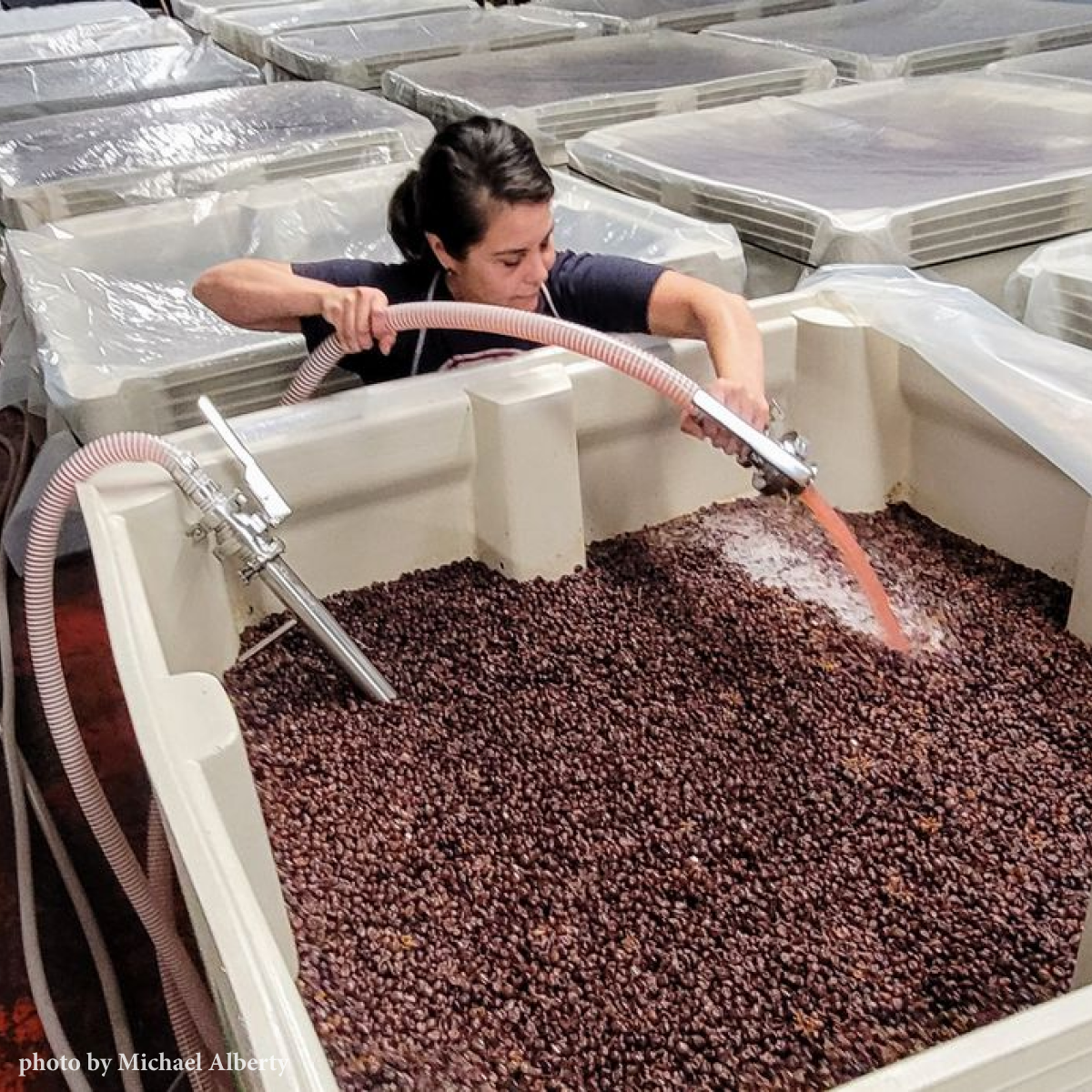
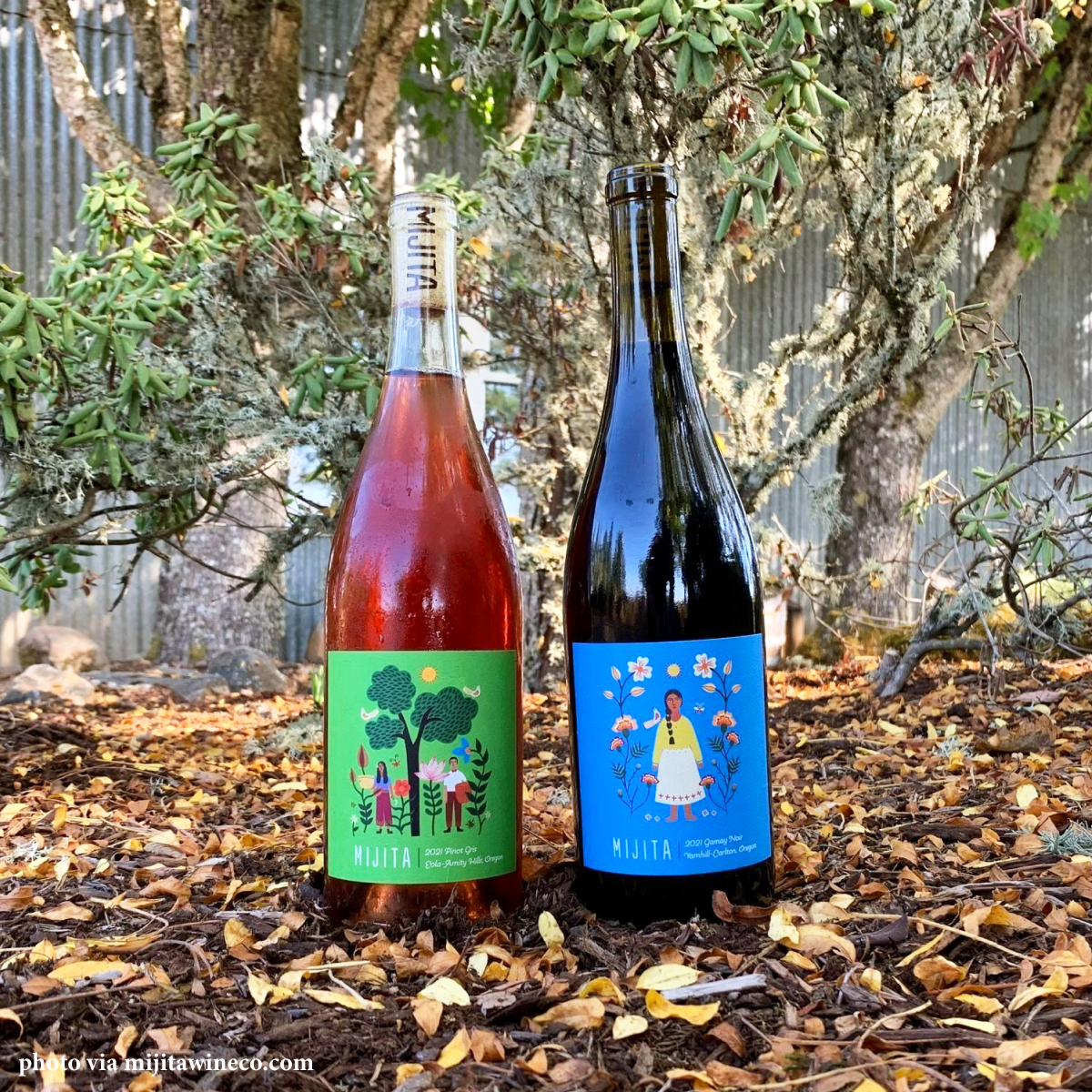
An opportunity at Bremerton Wines took her to South Australia to work alongside winemaker Rebecca Wilson, an experience Lizzy credits with “showing me how to run a winery and jump-starting my love for this whole winemaking thing.” She came back to Oregon intent on someday starting her own winery, and in 2021 she did just that. Named for the childhood term of endearment used by her aunties and grandparents, Mijita Wine Co. is still in its infancy, but off to a very promising start. Lizzy’s strong belief that winemaking begins in the vineyard means she works with Willamette Valley vineyards that employ sustainable and/or organic practices, allowing Mijita’s wines to showcase the high quality fruit Oregon is rightly famous for. While still tiny compared to Oregon’s more established wineries– Mijita produces less than 300 cases a year– we suspect this small winery is nevertheless primed for big things.
Images by Michael Alberty for the Oregonian & Mijita Wine Co.

Freetime Wine
Carly Laws has spent her entire career in the food and beverage industry. The Bend native moved to Portland for college, and ended up spending the next 15 years developing some of the city’s most forward-thinking beverage programs (including as opening beverage director at legendary spots like Clyde Common and the original incarnation of the Woodsman Tavern). She and her chef husband moved to Hood River nearly 10 years ago, where Carly continued her deep dive into wine, working closely with some of Italy’s best wineries as a portfolio manager for the importer Dalla Terra. This hands-on work with wineries near and far gave Carly the opportunity to further her understanding of the art and science of winemaking and deepened her commitment to sustainability.
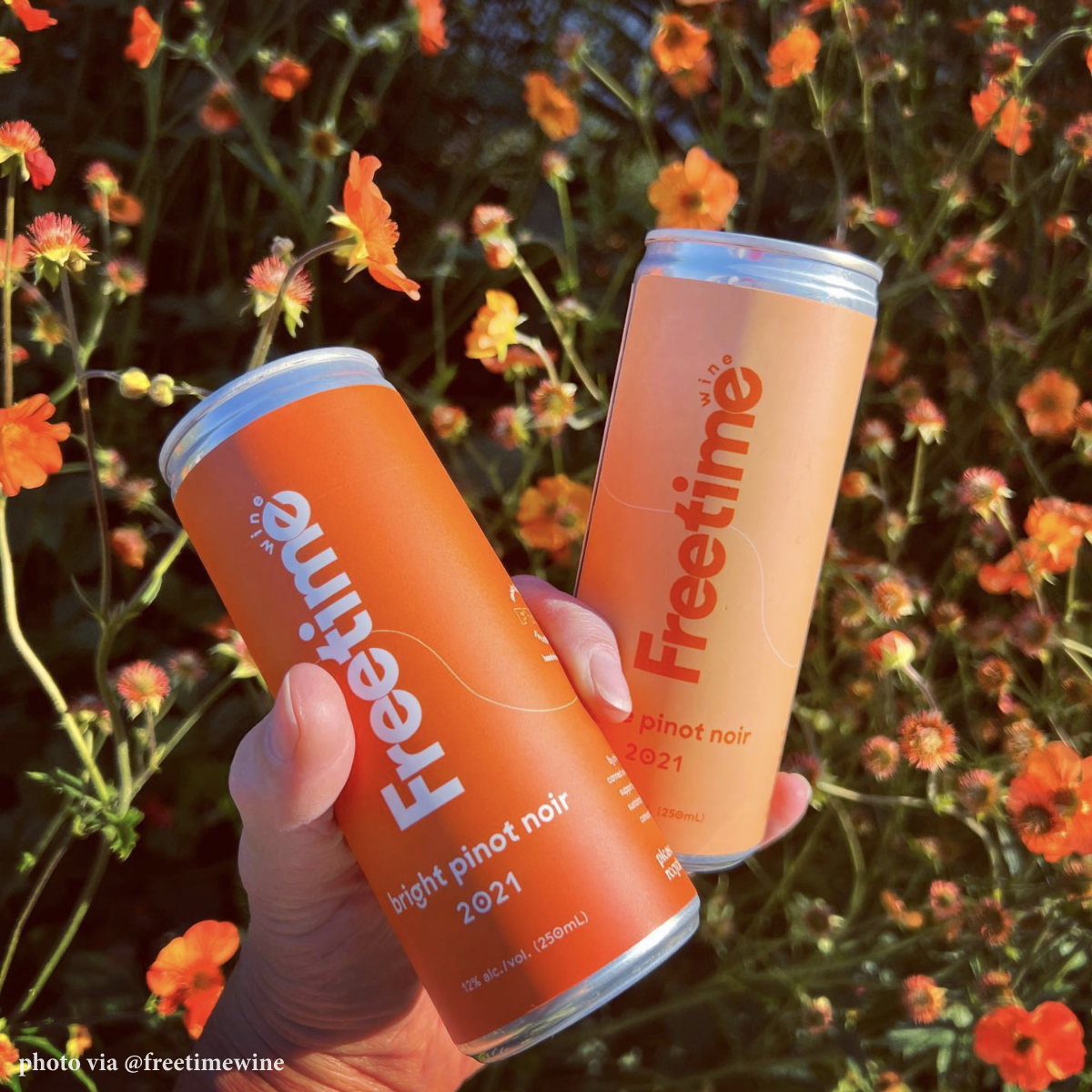
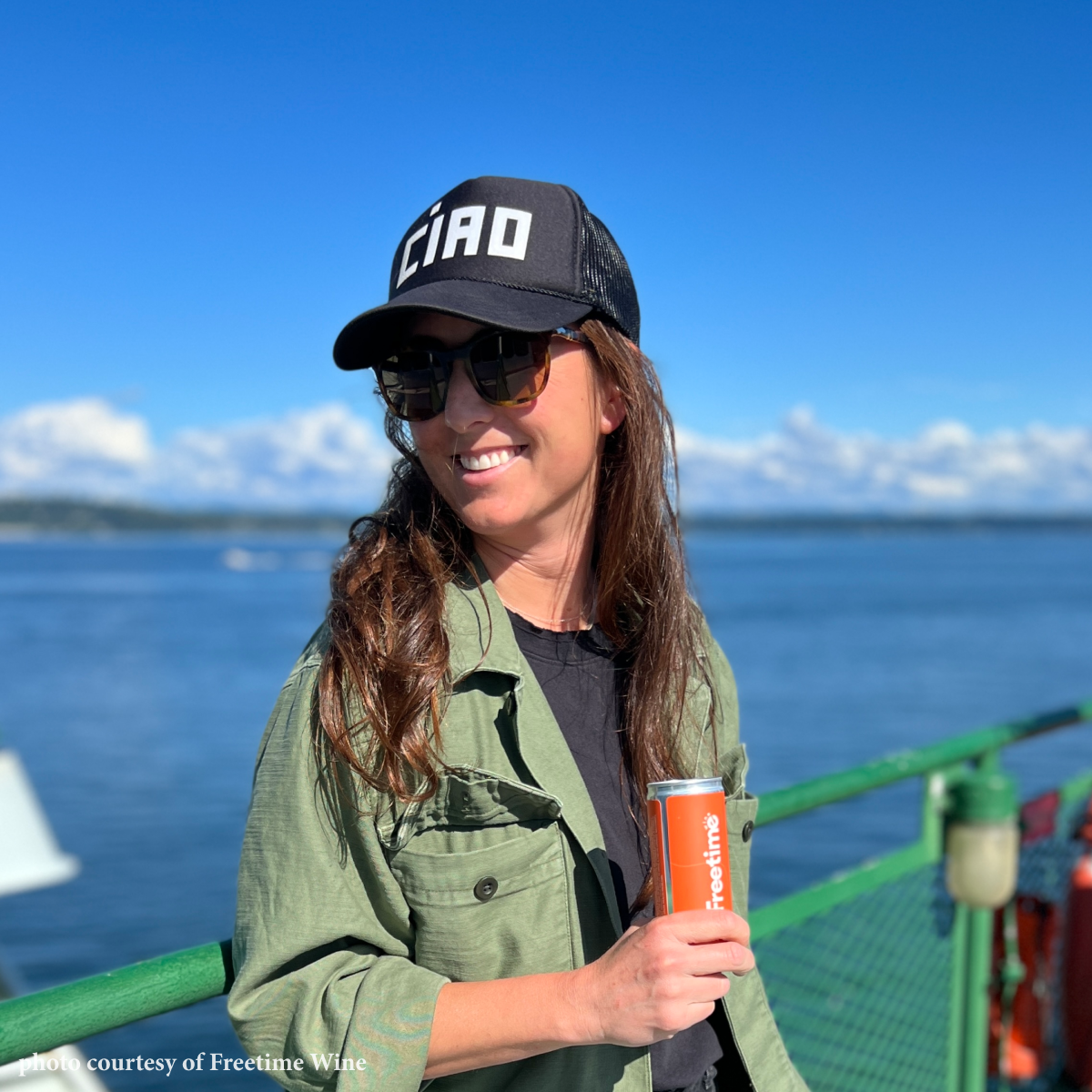
“I am doing it in a way that makes sense to me by creating different ‘versions’ of Pinot Noir to keep things interesting."
That commitment, coupled with a chance encounter with canned wine many years ago, was the “aha moment” that eventually led her to create Freetime, under which she makes two distinct Pinot Noirs, designed from the ground up to be put into aluminum cans. “Winemaking has never been my dream necessarily, but creating things I really believe in and that I want to share with people always has been.” Inspired by the growing momentum surrounding the Gorge’s nascent winemaking scene, Carly took a leap of faith. “The growth of the population; [the quickening rate of] development and viticultural arenas… winemakers are moving in from other regions. It's blowing up!” Her next step was to “coerce a friend into letting me use his incredible vineyard of organic-certified Pinot Noir to show it's possible to create a super high quality, super delicious, and real canned wine.”
While unequivocally rooted in a “deep appreciation for place,” Carly’s wines for Freetime are nevertheless looking to the future. “I'm hell bent on making canned wine, and ONLY canned wine.” They just “happen to be [made] from the varietal Oregon is most well known for,” which she sees not as a restriction, but an opportunity. “I am doing it in a way that makes sense to me by creating different ‘versions’ of Pinot Noir to keep things interesting. A lot of people still have never heard of or tried a white Pinot Noir.” The jump from enthusiast to producer is often fraught, but it’s clear Carly has landed firmly on her feet. “I don't know that I could have started Freetime anywhere else but Hood River. There's something so special about the potential and possibilities of this place right now.” Her second vintage is being canned right now, and if it’s even half as delicious as the first, we’ll have a lot of Freetime in our future.
Images via @freetimewine

Dacha Wines
Originally from Ohio, Corvallis-based Dacha Wines founder Isabel Newlin’s interest in agriculture drew her to France for a semester abroad, where she ended up working in vineyards in southern Burgundy. She caught the wine bug hard, traveling across France to meet other vignerons, and finally felt like she had found her people. “They were all very weird and very cool… I have always been attracted to hard agricultural work, but I sometimes felt that other types of farmers were much more wholesome than I was, whereas these winemakers really liked to have a good time. I was very attracted to that combination.”
After finishing school, she went back to France for a couple years to soak up all the knowledge she could, and when she was finally ready to launch her own project, Oregon made sense. “California is too hot, too dry, and too expensive, and all the vineyards in Washington” are too big. The Willamette Valley seemed like the perfect place for a burgeoning farmer/winemaker to settle: “It’s beautiful” says Isabel, and despite decades of development, for her it remains “generally mysterious. It’s very exciting that people are starting to look to places beside Burgundy for models. They are planting lots of Spanish varieties in southern Oregon, and I also hope that everyone will reconsider the aromatic white varieties for the north, because Oregon is much closer to Alsace, soil- and climate-wise, than it is to Burgundy.”
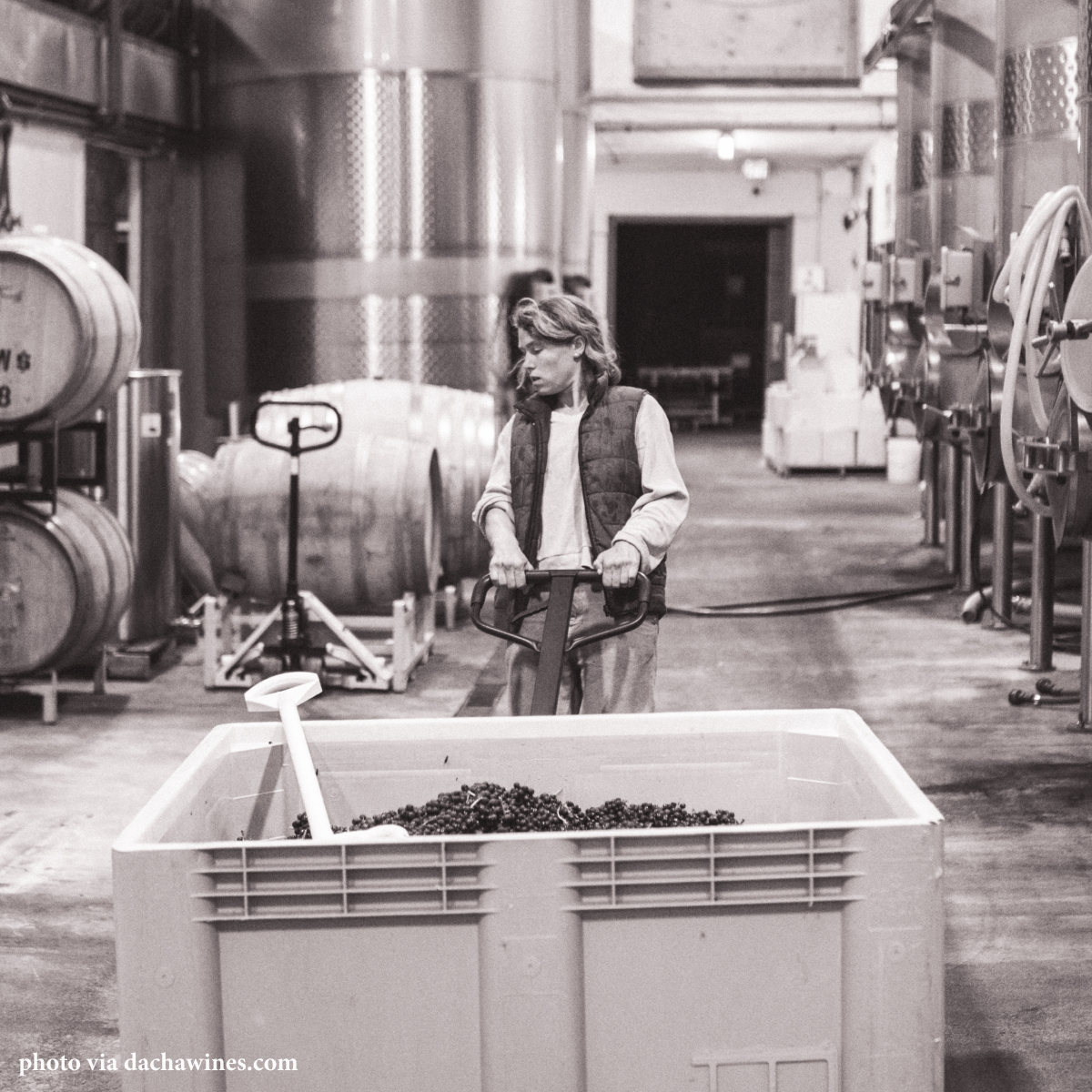
Isabel caught the wine bug hard, traveling across France to meet other vignerons, and finally felt like she had found her people.
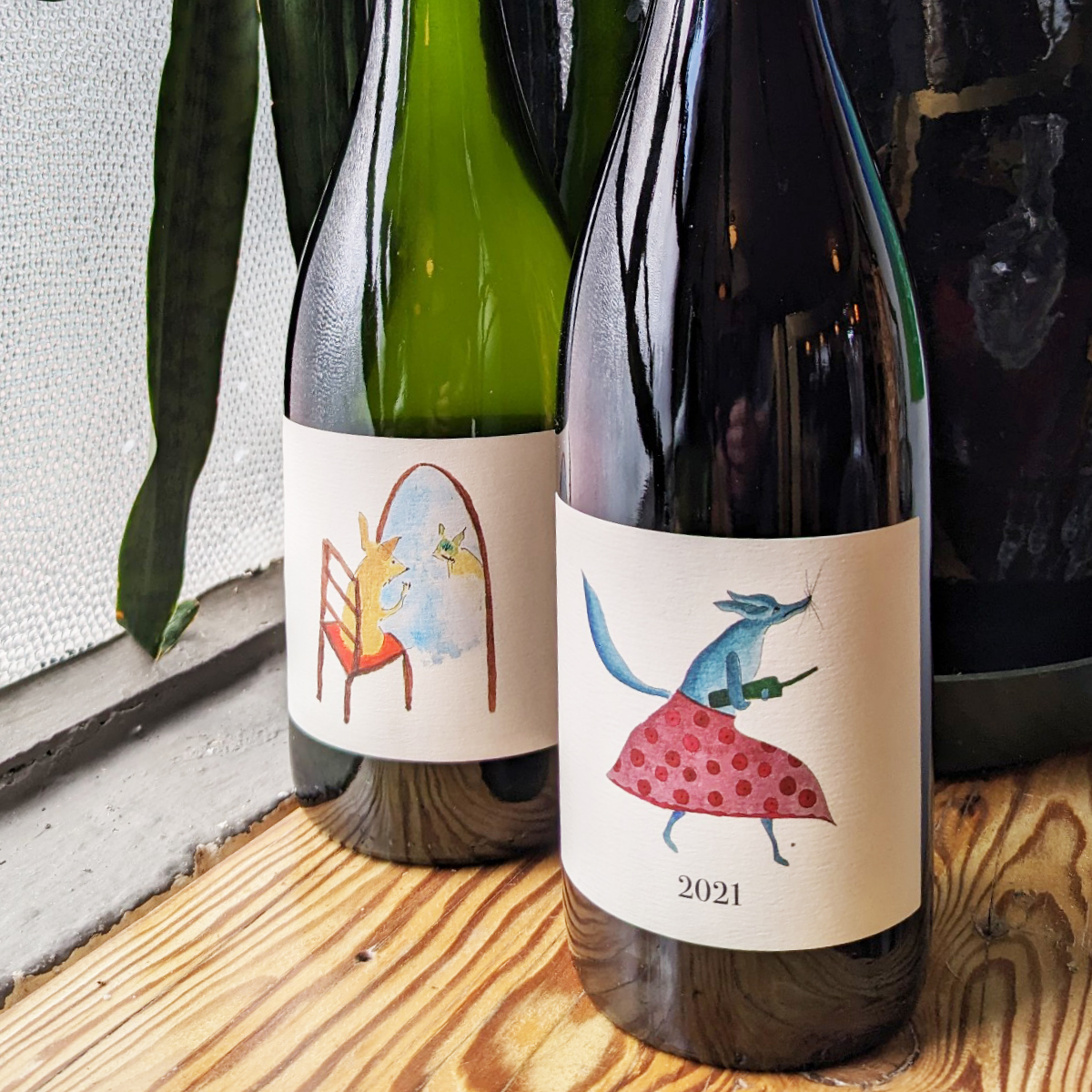
Still the farming is hard work, and Isabel longs for a day when the valley is dotted with small holdings like hers, offering an opportunity for more collaborative notions like tool-sharing. “I have made some great friends in the industry, and have found the community here to be incredibly supportive,” she says, noting that her colleagues at the vegetable farm she works part time are generous with their time and know-how. Barley into her second vintage, Isabel is already making a name for herself across the state; her wines are served at some Portland’s most well-respected establishments, and she’s been profiled by the Oregonian. It’s obvious we’re big fans, and we can’t wait to taste what’s next.
Images via dachawines.com

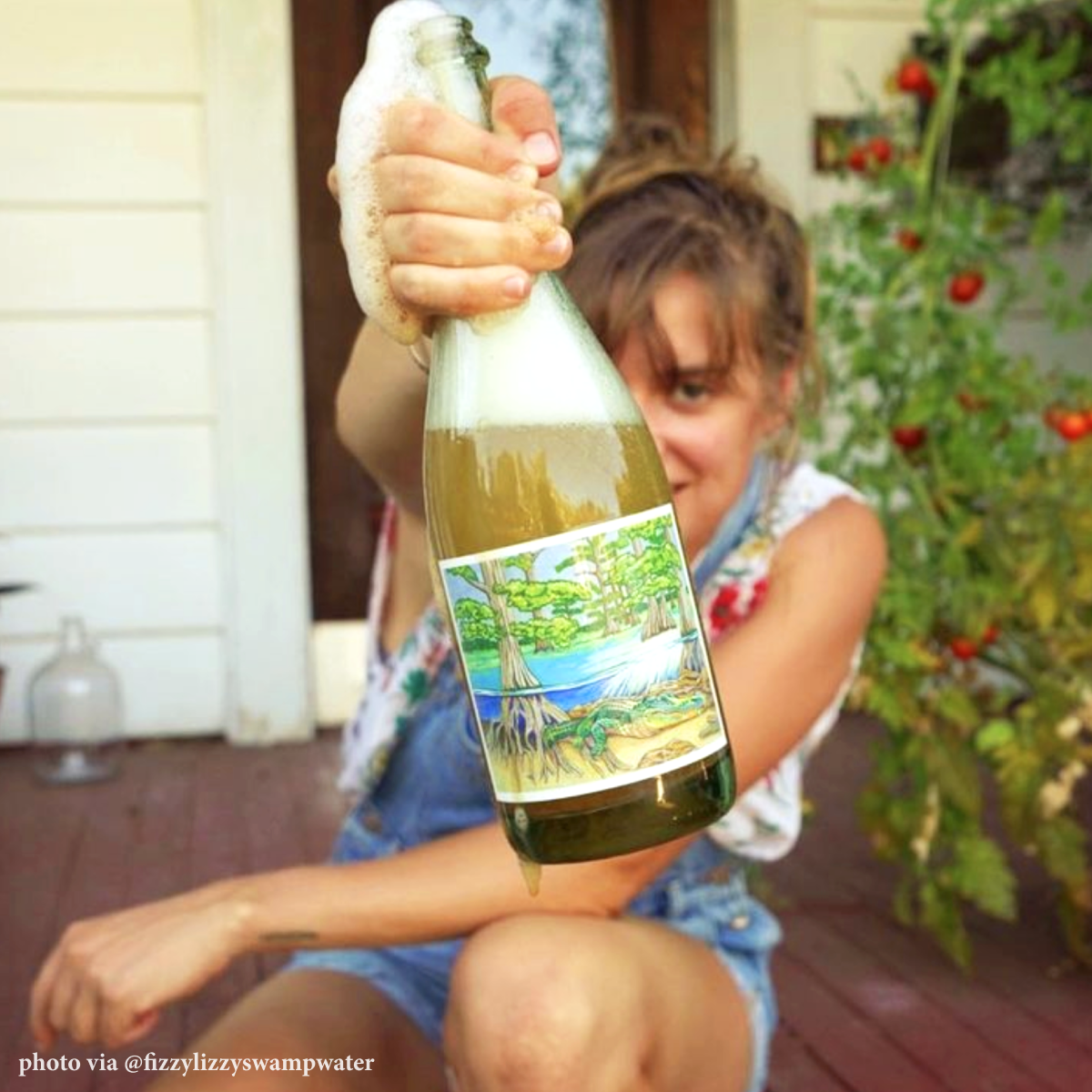
Fizzy Lizzy
In some ways, the Willamette Valley couldn’t be more different than New Orleans. There aren’t weekly parades through the streets of Salem, the bars aren’t open 24 hours, and in Oregon, Mardi Gras is just another Tuesday in spring. But if you squint just right, similarities start to emerge. “From the moment I arrived, I quickly recognized this valley’s spirit of camaraderie and hospitality,” says Lisette Hrapmann, owner of brand-new label Fizzy Lizzy. A rarity outside of her hometown, that sense of hospitality and “the opportunity to make my own wine, and the community of friends supporting that crazy notion, are some of the reasons I am still here.”
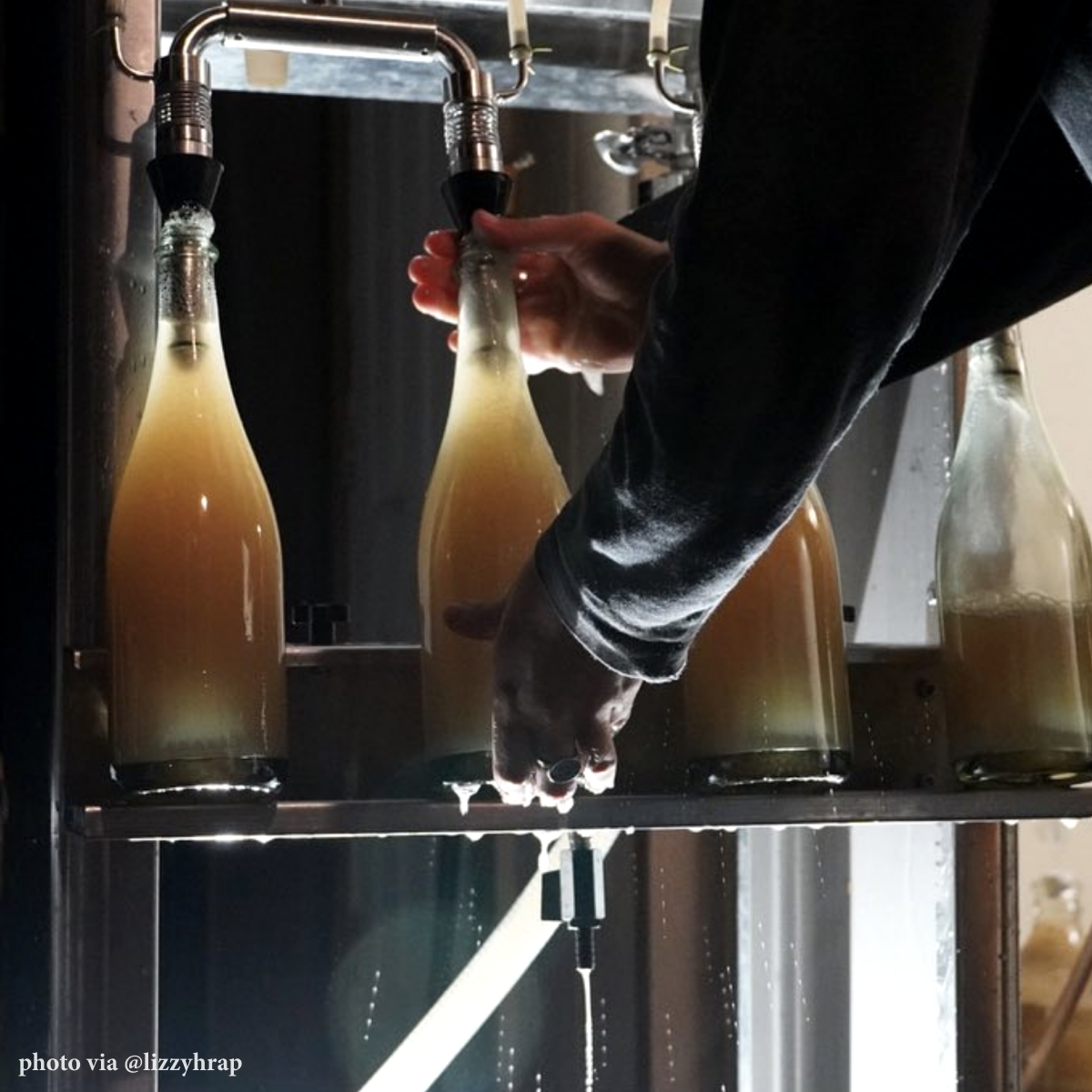
“the opportunity to make my own wine, and the community of friends supporting that crazy notion, are some of the reasons I am still here.”
We hope she sticks around for a while, because her first vintage, currently on the shelves at Wellspent, is a doozy. Her lone bottling is the fizzy pet-nat she calls Swampwater, a name that evokes hot summers on the Bayou, and our favorite kind of wine: serious but playful, it’s based on centuries of winemaking history but keeps an eye on the future. “I haven’t created something entirely new,” she says, noting that Pétillant Naturel-style wines have “a long established history.” But after working harvests in France, Chile, and California, Lisette appreciates the way that the Oregon winemaking community allows space for young winemakers to experiment. Besides the “perseverance, grit, and hard work,” it’s our unique “camaraderie and collaborative nature” coupled with a “willingness to share experiences and advise each other in order to perserve” that, to Lisette, is the greatest “strength of the Oregon wine industry.”
Images via @fizzylizzyswampwater @lizzyhrap

Mary Taylor Wine
Shopping for wine can be a drag. If you’re a novice, all those labels with foreign words and hard-to-read fonts can feel fraught with pretense and snobbery. How do you know which inexpensive grocery store wines are worth drinking? And what’s up with all those totally abstract labels that don’t give you any real info at all? Enter Mary Taylor, not a winemaker, but a wine industry vet who founded her eponymous importing company with her “24-year-old self” in mind, and has basically turned one of our favorite tricks (looking at the back label and shopping by importer) into her whole business model. All the wines she imports are labeled the same way: in simple, clear black and white she lays out who made the wine, the village or town it was made in, and, at the top of the information hierarchy, the region it comes from (known in wine as an ‘appellation’).
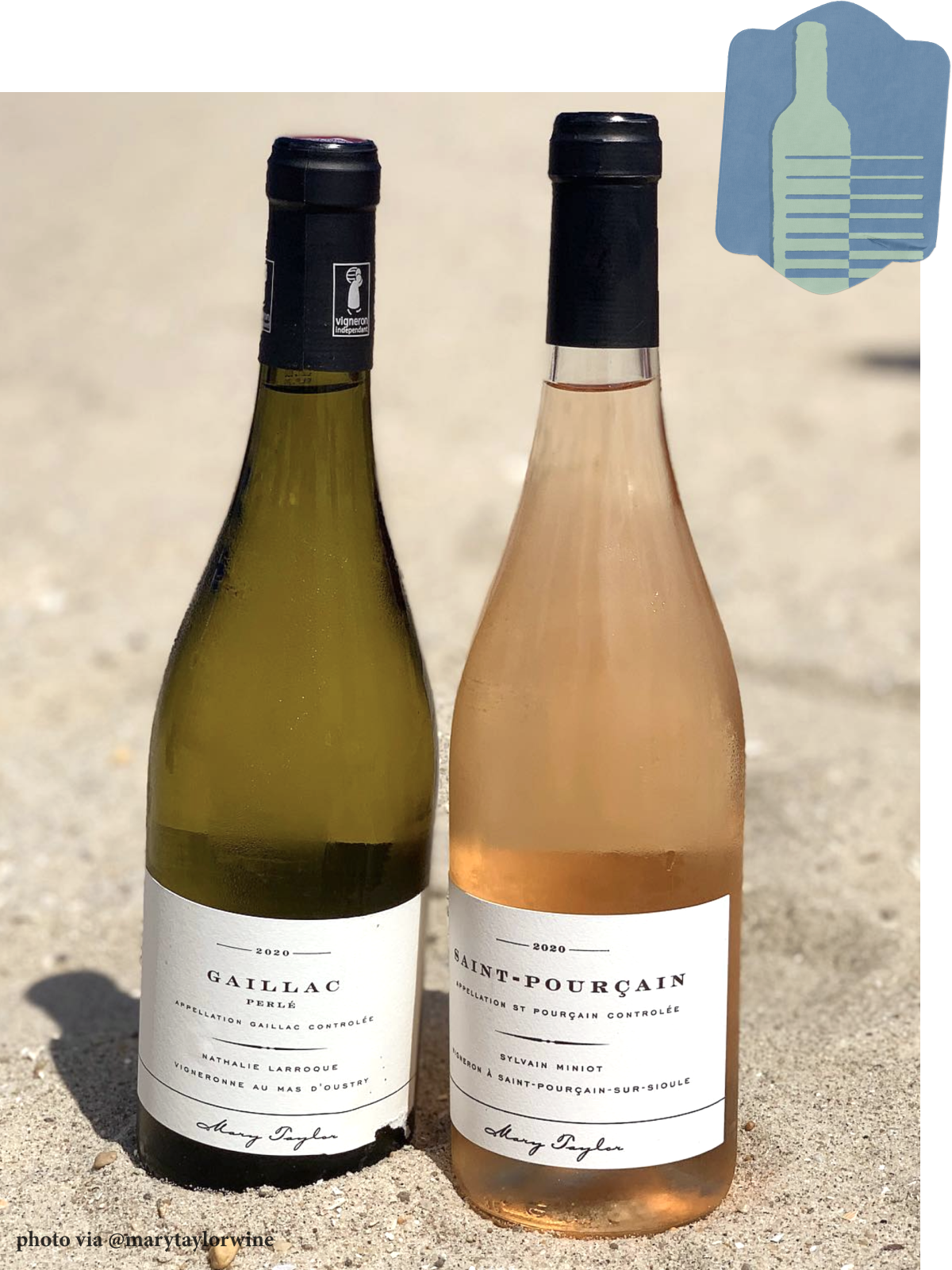
After decades in the wine industry, she’s built deep relationships with small producers in semi-obscure appellations who make the sort of good, honest wines enjoyed by the locals.
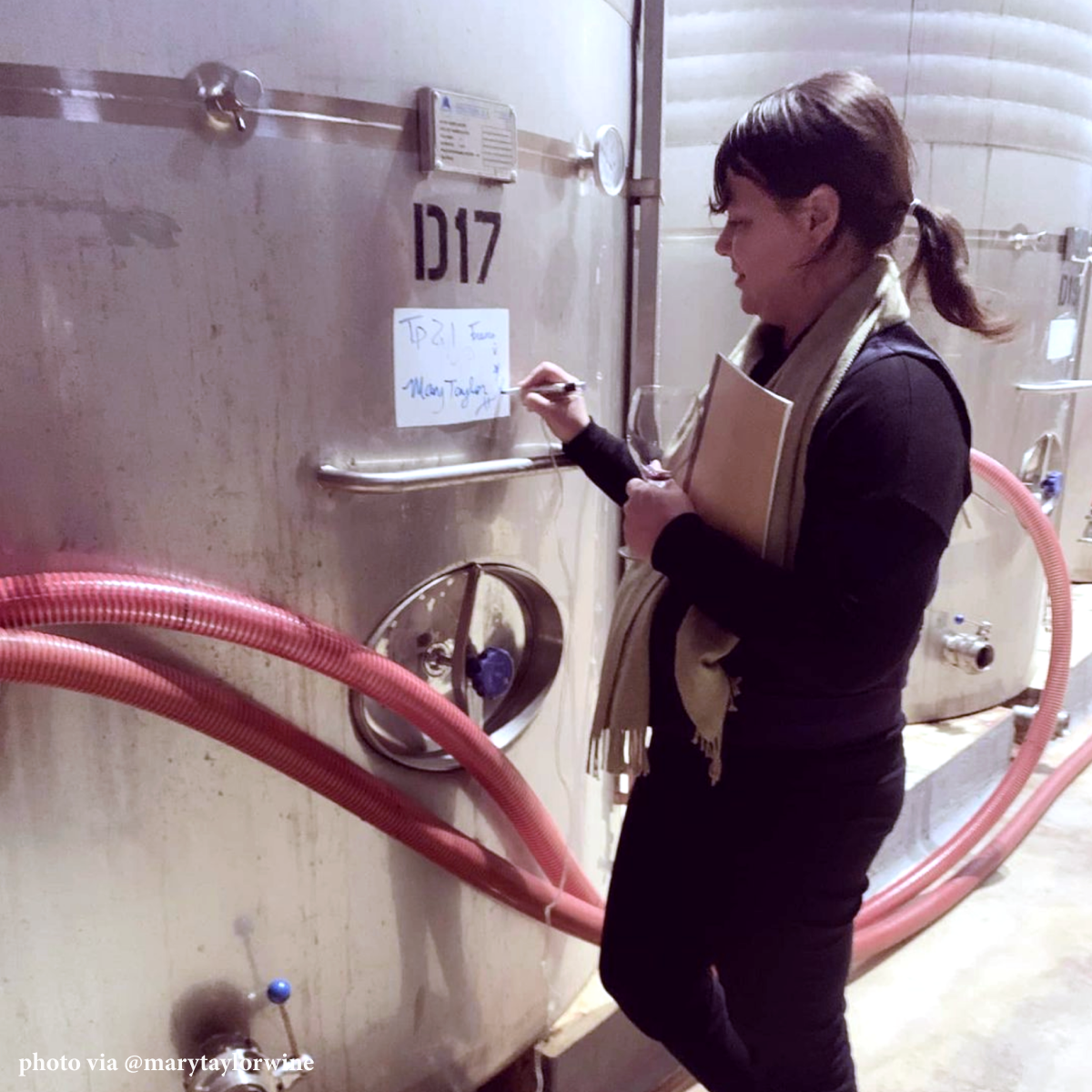
In Europe, appellation and “terroir” are more important than grape variety, as it indicates the wine’s character, personality, and overall vibe. A wine made with Gamay from one place will be different than a wine made somewhere else with the same grape, a fact Europeans have accepted for millennia and Mary is confident Americans can get the hang of. She points out that if we “treated cheese like we treat wine, we would have cow, sheep, and goat,” and not the Stiltons, Manchegos or Chevres we all know and love. On top of all of this, her wines are priced extremely approachably, offering some of the best bottles we’ve tasted at their price point (we’re talking $12-25 here) which she’s able to do because, after decades in the wine industry, she’s built deep relationships with small producers in semi-obscure appellations who make the sort of good, honest wines enjoyed by the locals. And not to worry: Mary includes grape varieties on the labels too, making it easier for those of us accustomed to the American, grape-centric style of wine shopping. We’ll drink to that!
Images via @marytaylorwine

Landmass Wines
It was a blind tasting that led Melaney Schmidt to Oregon. She was running high end cocktail bars in Los Angeles, and during a seasonal menu overhaul “did a blind tasting of 6 pinots and (chose) one from Oregon. I knew right then that Oregon had something special.” Fast-forward 7 years and she’s into her fifth vintage under her own label, Landmass Wines.
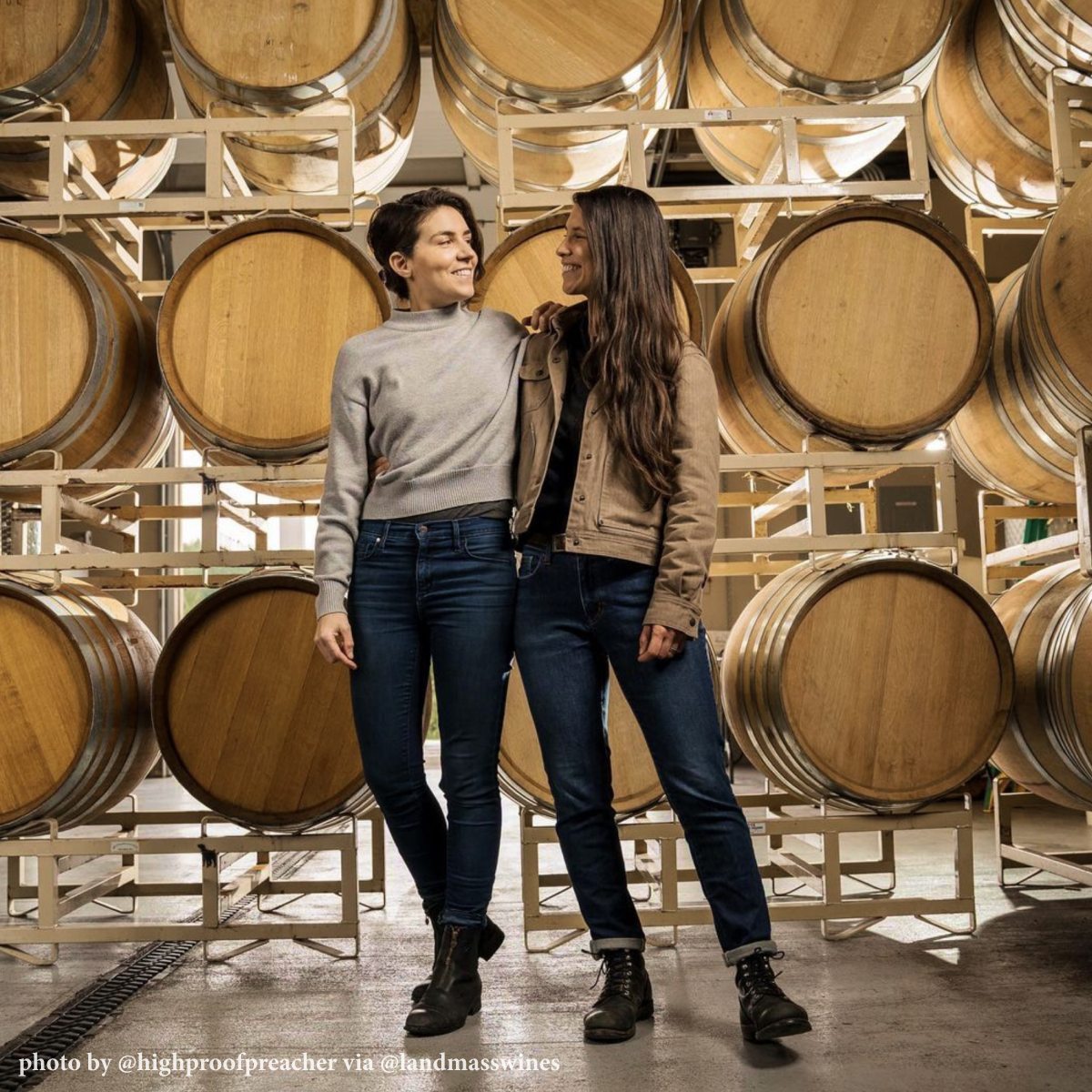
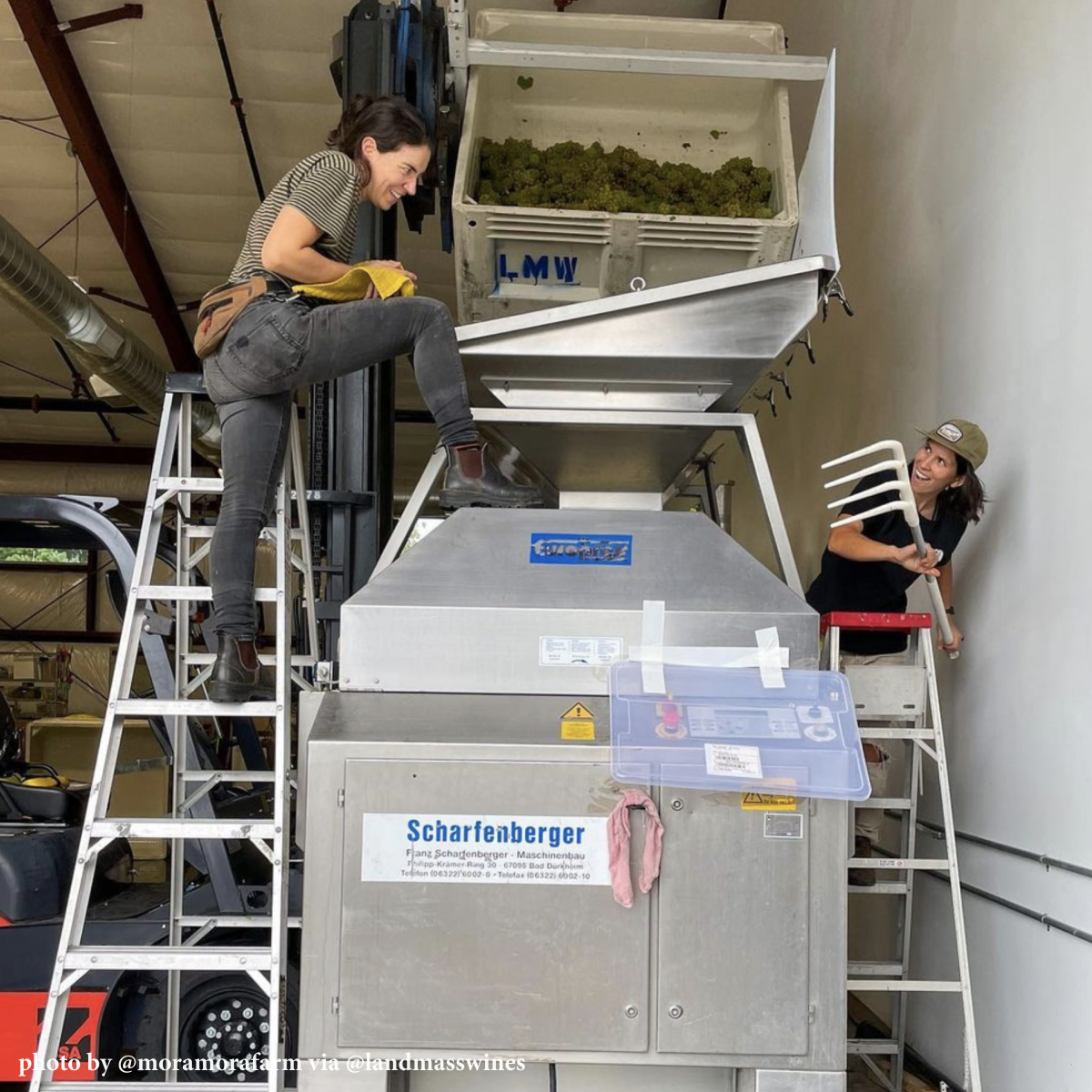
Melaney says she’s guided by a principle of “knowing the rules so I can break them when I want,”
Based in Cascade Locks in the Columbia River Gorge, Melaney and her partner (in life and business) Malia Meyers work to bridge the gap between Oregon’s “old guard and new school,” making wine that celebrates the region and foregrounds the grapes. Melaney says she’s guided by a principle of “knowing the rules so I can break them when I want,” and looks to more experienced local winemakers for guidance while also taking inspiration from the generation coming up behind her. Younger and “more experimental winemakers who aren’t afraid to ditch tradition and carve their own path” keep her on her toes, always learning. “Wine is magical,” she says, and Oregon provides endless inspiration, possibilities, and support, allowing her to “work with what the land provides, and to share the end result with those who seek out its celebration.”
Images via @landmasswines @highproofpreacher @moramorafarm
